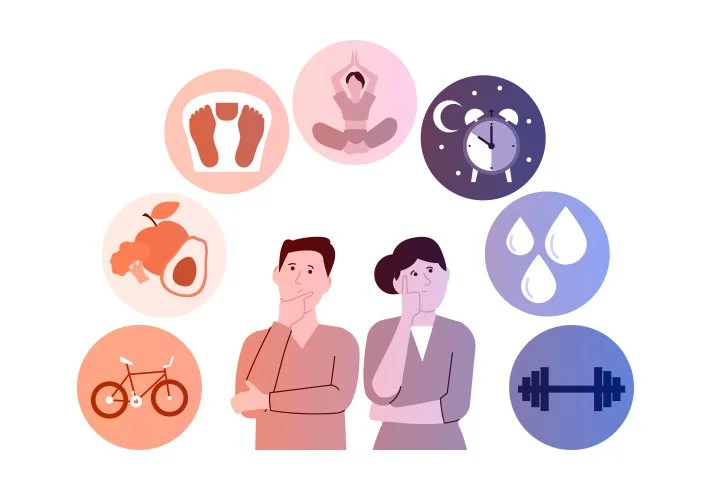Frosh Convos: Health and Balance
Most high school graduates eagerly anticipate the freedom and independence that come along with college. And most parents of high school graduates quietly hope that their students make good choices with that independence. Summertime provides a good opportunity to lay the groundwork and communicate about physical health, mental health, and balance. Fortunately, college campuses offer many resources to help students.
PHYSICAL HEALTH
Exercise, good nutrition, and sleep are all things that parents were able to influence (or at least monitor) through high school. College freshmen will be making these choices themselves on a daily basis. A few reminders:
Regular exercise releases endorphins (natural mood lifters), improves concentration, and combats stress. Campus recreation centers are usually filled to the brim with equipment, great facilities, classes, and recreational opportunities. They are also a great place to meet people. Encourage your student to attend an orientation session at the rec center, sign up for a class, and workout with a friend. Intramurals are also great for many reasons, and just walking around campus to explore will keep them moving.
On campus dining options have changed a bit since the 1990s - nutrition is a higher priority. Most schools have traditional cafeterias as well as partner restaurants, and offer traditional fare as well as extensive salad bars and vegetarian, vegan, gluten free, and other healthy options. Most residence halls have kitchens available for occasional use, so let your student get some healthy cooking practice in over the summer.
Lack of sleep is common in college, yet it's crucial for physical health, mental clarity, and emotional stability. Encourage your student to aim for 7-9 hours of sleep per night and to try to keep consistent sleep and wake times (and yes, this is hard for college students to do).
MENTAL HEALTH AND STRESS MANAGEMENT
College is a huge transition, and academic pressure, social change, and living independently can cause stress for everyone. Approaching this transition with balance in mind can help students navigate the adjustment.
Take advantage of the summer time to incorporate some healthy stress management techniques into your family’s routine - take up yoga, spend some time with a meditation app, or go on some after dinner walks together. These things will give you time together while modeling activities that are known to help manage stress. Check out our links and resources below, as we will talk more about mental health in a separate blog post. The summer is also a good time to look into the on-campus resources your student will have access to – mental health services, workshops, or Yoga on the Quad. Knowing about these things in advance can help your student get off to a healthy start.
Track down the academic support centers on campus. New freshmen are often surprised by the abundance of tutoring and coaching resources, and wish they would have discovered them even earlier. If you are a social media user, look up <name of school> + <student success center>. These offices usually offer subject matter tutoring as well as workshops or seminars on understanding the syllabus, managing workload, finding study groups, and preparing for exams. Knowing about these resources in advance might help your student adjust more smoothly.
While students may hope that their roommate or down-the-hall neighbor becomes their new bestie, it doesn’t always work out that way. Remind your student to attend the club fairs and events and to sign up for at least one thing that has no barrier to entry (i.e. no try-outs or auditions or interviews - just a desire to join). Establishing relationships will help balance out the stress points of freshman year.
Starting these conversations before your student leaves makes it easier to loop back and check in, and also helps your student understand that balance is the goal. Prioritizing these practices is helpful not just academic success, but for a happier, healthier college experience.

